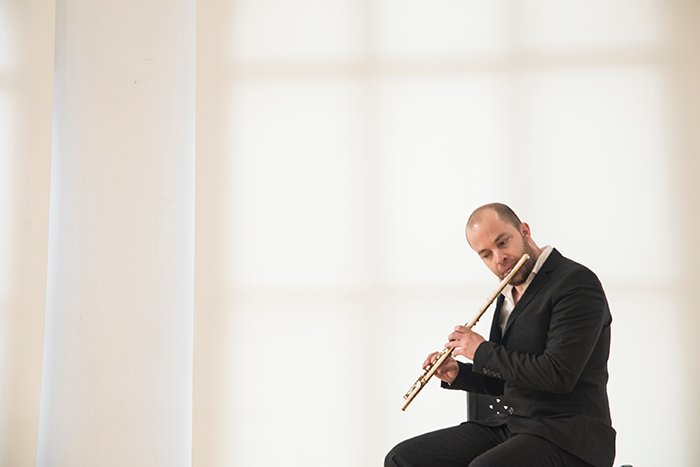|
ML&L - What was most original about this new album “Against Capitalism”?
Marco Di Meco - I can say that in this album a form of musical writing is explored,
a form that comes from the past but is mixed with the sounds of today's music such as pop, funk or R&B.
Technically I took the structure of a classical symphony. I wrote the main themes that are usually two in the first movement,
only that the transition between the two themes is not written, the musician must be able to improvise it.
Obviously this is to simplify, but inside especially the first song, Honey and Fire, there are many other things.
ML&L - Does the whole album fit into a particular musical genre, or does it borrow from multiple forms?
Marco Di Meco -
Marco Di Meco - Well, the album certainly belongs to Jazz, to contemporary Jazz, of course,
but the sounds that are in it belong to different musical genres. In particular the major influences come from classical music, from R&B and a bit from Pop.
ML&L - Key influences for this new album?
Marco Di Meco - I started writing this album during the recordings of my second album "Rosalinda", so I had a lot of time to write it
and during this time I listened to a lot of music. And as I said, there are many influences, but if I had to say two out of all, I think it's Frank Zappa and John Surman.
ML&L - What does the album's title reveal, tell about the album's impact and themes.
Marco Di Meco - Against Capitalism, as you can imagine, it is my saying aloud: a society that bases its well-being on consumption,
on the gain and accumulation of money is a sick and wrong society.
For two main reasons: the first reason concerns the right of every human being to have their share of what this planet has to offer.
The second reason concerns the fact that love, friendship, and all the emotions in general, you can’t buy them.
You can't buy two kilos of friendship or, I do not know, seven thousand dollars of intelligence. You need to earn them by living them.
You must conquer them with experience, with passion and humility. This regards the first part of the title.
Whereas Première Symphonie refers to the musical structure, as I explained above.
|











